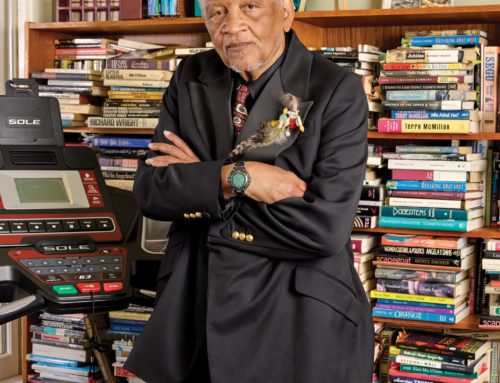“How do we devise a method for living the present moment within a frame of redemptive, universal history?” When the narrator of Peter Dimock’s second novel, George Anderson, poses this question, he’s not ostensibly speaking of literature. Yet the question catches the reader’s eye: might the contemporary novel serve as such a method? George Anderson is indeed this ambitious, a work of great ethical force and historical scope, written in the singular form of what might best be described as — try to imagine it — an epistolary, synesthetic, anti-imperial self-help manual.


